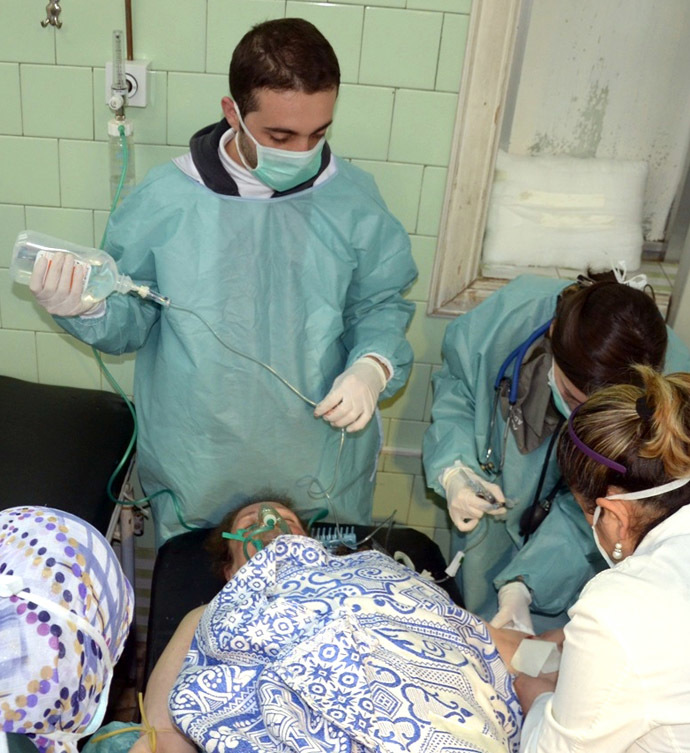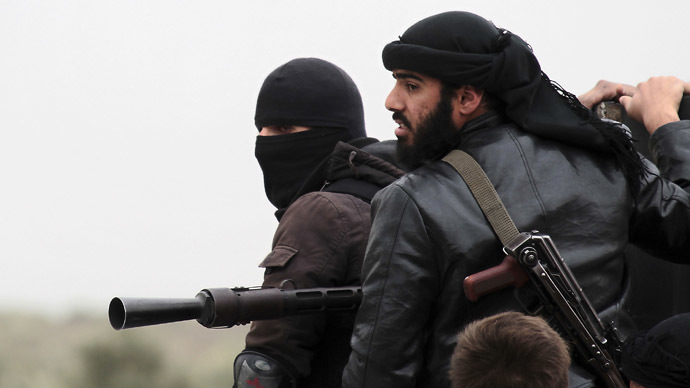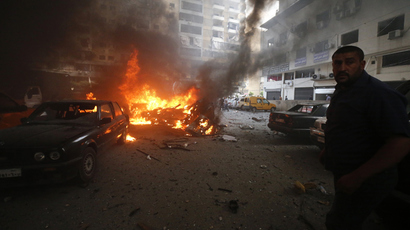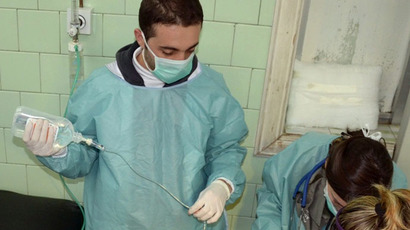MI6 warning: ‘Catastrophe’ if chemical weapons fall into Al-Qaeda hands

If Syrian rebels gain access to the vast stockpile of chemical weapons, it would have ‘catastrophic consequences,’ MI6 has warned. There are concerns a regime fall may trigger the proliferation of “the deadliest nerve agent ever created.”
The head of UK spy agency MI6, Sir John Sawers, has voiced his
serious concern over the escalating conflict in Syria. His words
accompanied the release of an annual report by the parliamentary
intelligence and security committee, charged with overseeing the
work of British intelligence agencies.
“There has to be a significant risk that some of the country’s
chemical weapons stockpile could fall into the hands of those
with links to terrorism, in Syria or elsewhere in the region. If
this happens, the consequences could be catastrophic,” said
the committee.
Moreover, the parliamentary committee said Syrian President
Bashar Assad has “vast stockpiles” of chemical arms,
including sarin, ricin, mustard gas and VX – branded as “the
deadliest nerve agent ever created.”

Echoing the statements of the
British Prime Minister, who said last month there was evidence
Al-Qaeda-linked rebels tried to acquire chemical weapons, the
report classified extremist elements in Syria as "the most worrying emerging terrorist
threat" to the UK and its allies.”
It noted the movement of “radicalized individuals” from
the UK and other countries in the EU towards the conflict zone.
"They are likely to acquire expertise and experience which could
significantly increase the threat posed when they return
home.”
The UK has also alleged that the Syrian government has used
chemical weapons on its own population, something that the
international community has been unable to agree on. France, UK
and the US all claim to have found evidence of regime forces
using chemical weapons, but Russia and China say they are
unsubstantiated.
As yet the UN commission inquiry currently examining the
situation in Syria has not found concrete evidence of any
chemical weapons being used in the conflict.

Obama blocked by Congress
US President Barack Obama had previously authorized military aid
to the rebels in Syria, maintaining the Assad regime had crossed
a “red line” and used chemical weapons against citizens.
However, members of the House and Senate Intelligence Committees
have reportedly moved against the initiative, implementing
restrictions on the funding of rebel groups in Syria.
A source that spoke with the publication The Hill cited fears of
exacerbating terrorism in Syria as the driving force behind the
move.
Lawmakers in the US are particular worried about weapons falling
into the hands of Al-Qaeda-affiliated group Al-Nusra Front.
The conflict in Syria has been raging for over two years now and
shows no signs of abating. The UN has estimated that around
90,000 people have been killed in the violence that has engulfed
the country.














